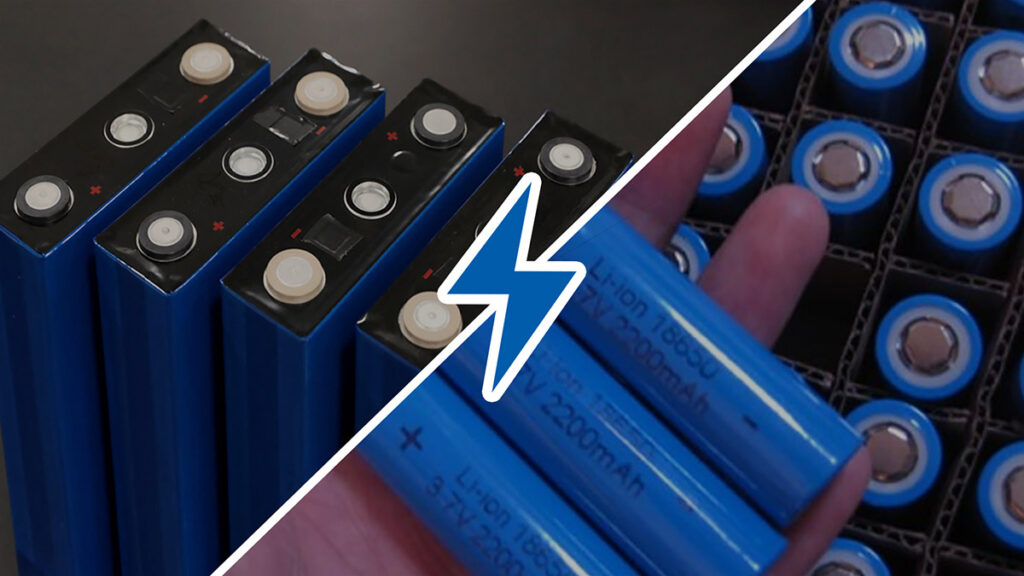When it comes to advanced energy storage solutions, lithium-based batteries have become the go-to choice in recent years. Among them, Lithium Iron Phosphate (LFP) batteries stand out for their exceptional performance, durability, and safety features. In this comprehensive guide, we will delve into the technical characteristics, advantages, and utilization of LFP batteries, while highlighting their key differences and advantages over traditional lithium-ion batteries.
What are LFP Batteries?
LFP (or LiFePO4) batteries, short for lithium iron phosphate batteries, are a type of lithium-ion battery that uses lithium iron phosphate as the cathode material. The composition of LFP batteries includes an anode, cathode, electrolyte, and separator. These batteries undergo electrochemical reactions during the charging and discharging processes.
How do LFP Batteries Work?
During the charging process, lithium ions move from the cathode to the anode, and during discharging, they move from the anode to the cathode. This movement of lithium ions allows for the storage and release of energy. LFP batteries offer high energy density and stable voltage output, making them reliable power sources. Additionally, LFP batteries have a low self-discharge rate, making them suitable for long-term storage.
Applications of LFP Batteries
LFP batteries find applications in various industries due to their unique characteristics. In electric vehicles (EVs), LFP batteries are preferred for their high energy density, long lifespan, and enhanced safety. They also play a crucial role in renewable energy storage by storing energy generated from sources like solar and wind power. LFP batteries are commonly used in uninterruptible power supply (UPS) systems to provide continuous power during outages. Furthermore, their lightweight design and consistent power output make them advantageous for marine and RV applications.
Advantages of LFP Batteries
1. Safety:
LFP batteries are renowned for their exceptional safety features. Compared to other lithium-ion battery chemistries, they have a lower risk of thermal runaway, which means they are less likely to overheat or catch fire. This makes them a reliable and secure option for various applications.
2. Long Lifespan:
One of the key advantages of LFP batteries is their extended lifespan. They can endure a higher number of charge-discharge cycles without significant capacity loss. This longevity makes them a cost-effective choice as they require fewer replacements over time, reducing maintenance costs.
3. High Energy Density:
LFP batteries boast a high energy density, allowing them to store a large amount of energy in a compact size. This makes them ideal for applications where space is limited, such as electric vehicles and portable electronic devices. With their high energy storage capacity, LFP batteries can power devices efficiently for longer durations.
4. Fast Charging Capability:
LFP batteries can be charged at a faster rate compared to other lithium-ion batteries. They have a high charge acceptance, enabling quick charging times. This advantage is particularly beneficial in applications where quick recharge is required, such as electric vehicles or renewable energy storage systems. Fast charging capability ensures minimal downtime and maximizes efficiency.
5. Wide Temperature Range:
LFP batteries perform exceptionally well in extreme temperature conditions, both high and low. They can operate at temperatures as low as -20°C (-4°F) and as high as 60°C (140°F) without significant performance degradation. This makes them suitable for use in various environments and climates, providing reliable power even in extreme weather conditions.
6. Environmental Friendliness:
Compared to other lithium-ion chemistries, LFP batteries are considered more environmentally friendly. They do not contain toxic heavy metals like cobalt or nickel, making them easier to recycle and dispose of responsibly. This eco-friendly characteristic aligns with the growing demand for sustainable energy solutions.
7. Low Self-Discharge Rate:
LFP batteries have a low self-discharge rate, meaning they can retain their charge for longer periods when not in use. This makes them ideal for applications where long-term storage is required, such as backup power systems or emergency equipment. Users can rely on LFP batteries to provide power when needed, even after extended periods of inactivity.
8. High Power Output:
LFP batteries deliver high power output, making them suitable for applications that require a sudden surge of energy. Electric vehicles and power tools greatly benefit from this feature, as it ensures efficient and reliable performance during demanding tasks.
Conclusion:
The advantages of LFP batteries make them a popular choice for various applications, including electric vehicles, renewable energy storage systems, portable electronics, and backup power systems. With their exceptional safety features, long lifespan, high energy density, fast charging capability, wide temperature range, environmental friendliness, low self-discharge rate, and high power output, LFP batteries offer reliable and efficient power solutions in diverse industries. As technology continues to advance, LFP batteries are expected to play a crucial role in shaping the future of energy storage and transportation.

